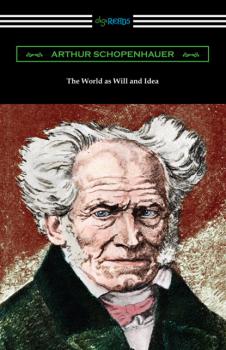ТОП просматриваемых книг сайта:















Arthur Schopenhauer
Список книг автора Arthur SchopenhauerАннотация
German philosopher Arthur Schopenhauer wrote a strong text to explain his belief system in “The World as Will and Idea”. Rather than viewing the world as a construct within itself, Schopenhauer argued that the world exists beyond the five senses. He believed that rather than seeing an object in its true form, we only see and understand our perception of it. His ideas are classified as post-Kantian philosophy, just one strand of thought amidst other thinkers such as Hegel and Heidegger. However, Schopenhauer is generally thought to follow Kant’s original ideas most closely. Still, the philosopher disagrees with Kant’s view of ethics, saying that inner experiences, driven by the Will, are the most significant part of the human experience. Born in the late 1700s, Schopenhauer was immersed in philosophy at a young age. By age 25, he published his doctoral dissertation “On the Fourfold Root of the Principle of Sufficient Reasoning”. In his most famous works, he primarily focused on the attainment of happiness. He believed that physical and emotional desires can never be satisfied, resulting in a painful human condition. Schopenhauer claimed that all actions are internally motivated by a desire to obtain pleasure, but that lasting happiness would remain unobtainable. “The World as Will and Idea” is widely hailed as Schopenhauer’s greatest work, as well as one of the most contemporarily-written philosophical texts of the nineteenth century. This edition collects together the complete text in a translation by R. B. Haldane and J. Kemp.
Аннотация
"Religion: A Dialogue" by Arthur Schopenhauer (translated by Thomas Bailey Saunders). Published by Good Press. Good Press publishes a wide range of titles that encompasses every genre. From well-known classics & literary fiction and non-fiction to forgotten−or yet undiscovered gems−of world literature, we issue the books that need to be read. Each Good Press edition has been meticulously edited and formatted to boost readability for all e-readers and devices. Our goal is to produce eBooks that are user-friendly and accessible to everyone in a high-quality digital format.
Аннотация
"Government" by Arthur Schopenhauer (translated by Thomas Bailey Saunders). Published by Good Press. Good Press publishes a wide range of titles that encompasses every genre. From well-known classics & literary fiction and non-fiction to forgotten−or yet undiscovered gems−of world literature, we issue the books that need to be read. Each Good Press edition has been meticulously edited and formatted to boost readability for all e-readers and devices. Our goal is to produce eBooks that are user-friendly and accessible to everyone in a high-quality digital format.
Аннотация
Diese Ausgabe der Werke von Arthur Schopenhauer wurde mit einem funktionalen Layout erstellt und sorgfältig formatiert. Dieses eBook ist mit interaktiven Inhalt und Begleitinformationen versehen, einfach zu navigieren und gut gegliedert. Arthur Schopenhauer (1788-1860) war ein deutscher Philosoph, Autor und Hochschullehrer. Schopenhauer entwarf eine Lehre, die gleichermaßen Erkenntnistheorie, Metaphysik, Ästhetik und Ethik umfasst. Er sah sich selbst als Schüler und Vollender Immanuel Kants, dessen Philosophie er als Vorbereitung seiner eigenen Lehre auffasste. Weitere Anregungen bezog er aus der Ideenlehre Platons und Vorstellungen östlicher Philosophien. Innerhalb der Philosophie des 19. Jahrhunderts entwickelte er eine eigene Position des Subjektiven Idealismus und vertrat als einer der ersten Philosophen im deutschsprachigen Raum die Überzeugung, dass der Welt ein irrationales Prinzip zugrunde liegt. Inhalt: Die Welt als Wille und Vorstellung (Band 1&2) Die Kunst, Recht zu behalten: Eristische Dialektik Über die vierfache Wurzel des Satzes vom zureichenden Grunde Arthur Schopenhauer's handschriftlicher Nachlaß: Vorlesungen und Abhandlungen Parerga und Paralipomena (Band 1&2) Die Stachelschweine
Аннотация
"The World as Will and Idea" is the central work of the German philosopher Arthur Schopenhauer. Taking the transcendental idealism of Immanuel Kant as his starting point, Schopenhauer argues that the world we experience around us – the world of objects in space and time and related in causal ways – exists solely as «representation» dependent on a cognizing subject, not as a world that can be considered to exist in itself. Our knowledge of objects is thus knowledge of mere phenomena rather than things-in-themselves. Schopenhauer identifies the thing-in-itself – the inner essence of everything – as will: a blind, unconscious, aimless striving devoid of knowledge, outside of space and time, and free of all multiplicity. The world as representation is, therefore, the «objectification» of the will. «The World as Will and Idea» marked the pinnacle of Schopenhauer's philosophical thought; he spent the rest of his life refining, clarifying, and deepening the ideas presented in this work without any fundamental changes.
Аннотация
"Aphorismes sur la sagesse dans la vie", de Arthur Schopenhauer, traduit par J. A. Cantacuzène. Publié par Good Press. Good Press publie un large éventail d'ouvrages, où sont inclus tous les genres littéraires. Les choix éditoriaux des éditions Good Press ne se limitent pas aux grands classiques, à la fiction et à la non-fiction littéraire. Ils englobent également les trésors, oubliés ou à découvrir, de la littérature mondiale. Nous publions les livres qu'il faut avoir lu. Chaque ouvrage publié par Good Press a été édité et mis en forme avec soin, afin d'optimiser le confort de lecture, sur liseuse ou tablette. Notre mission est d'élaborer des e-books faciles à utiliser, accessibles au plus grand nombre, dans un format numérique de qualité supérieure.










